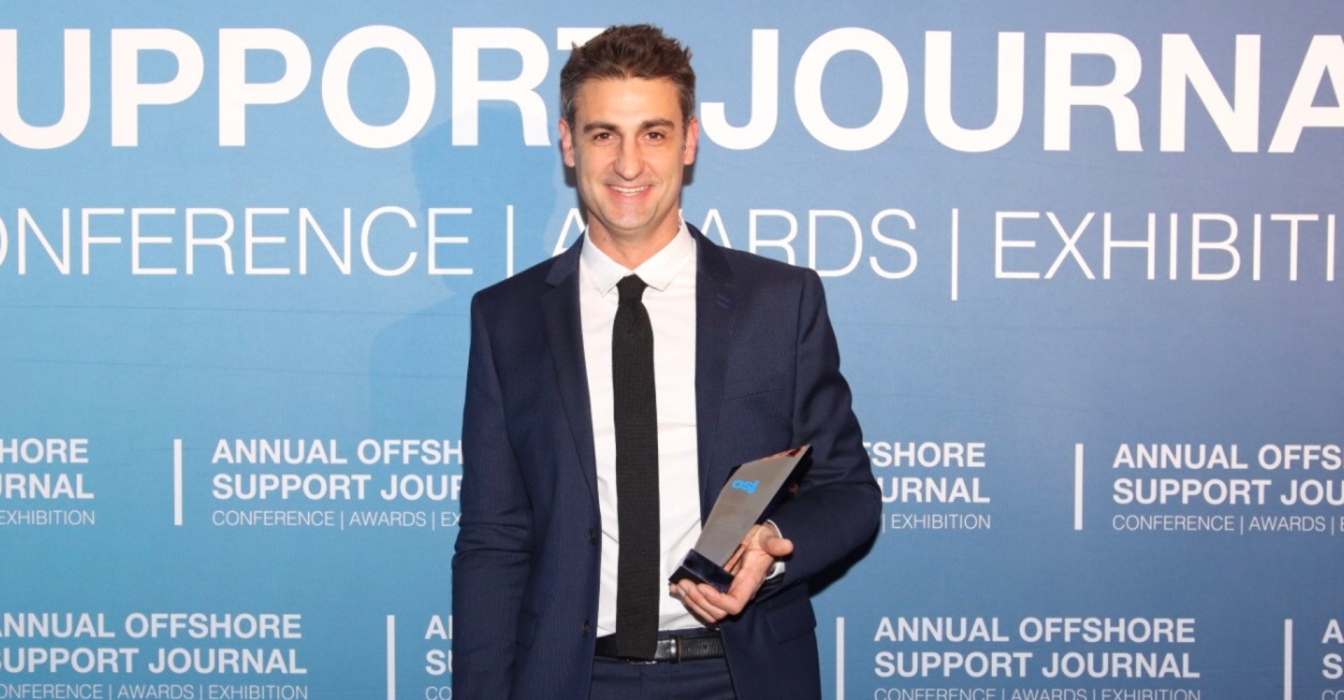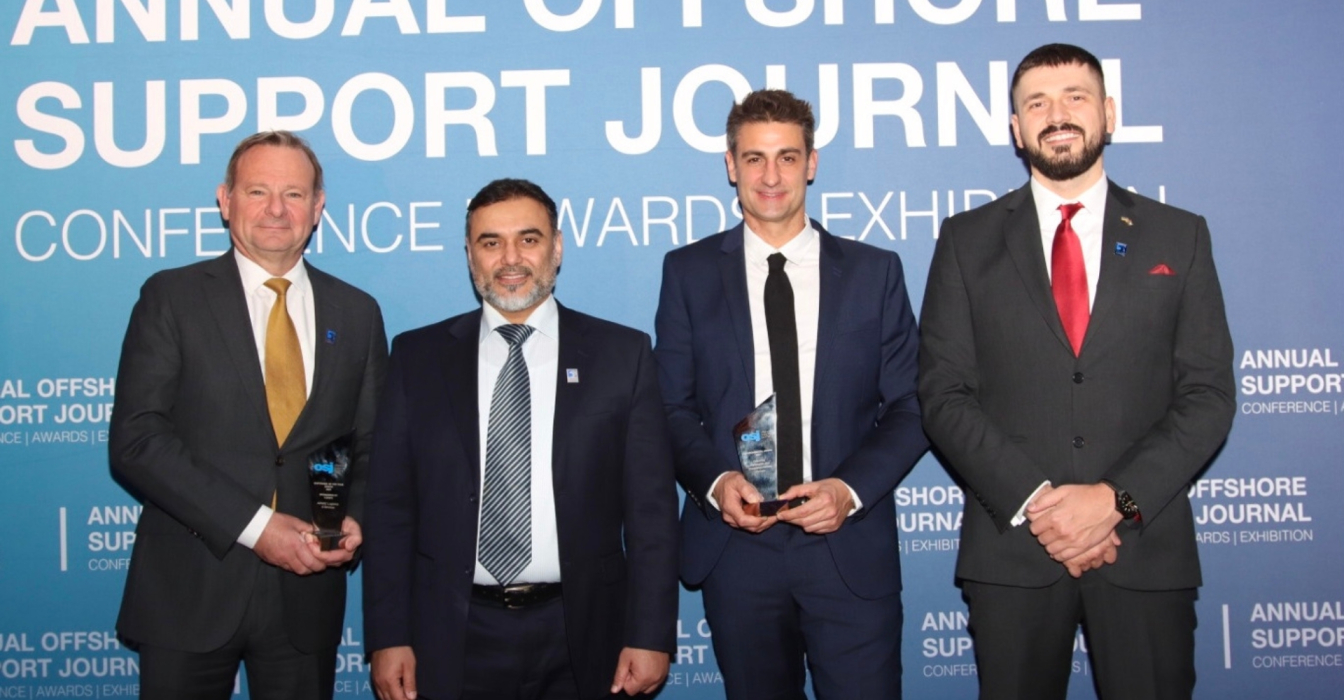Images: Rivieramm
Insights from Opsealog and the OSJ 2023
The Offshore Support Journal Conference and Awards 2023 was an incredible event that took place from February 7th to 9th in London. It brought together the key players of the offshore supply vessel (OSV) industry from around the world to share insights and discuss the industry’s current state. With the current global economy and interest rates reaching all-time highs, the panel discussions highlighted the OSV industry challenges and the exciting opportunities for growth and innovation. The event was an excellent opportunity for Opsealog to participate in discussions and observe substantial trends that will significantly impact the industry moving forward.
Lack of New Builds Drives OSV Daily Rates Up
Recently, the global economy and interest rates have risen to record highs, leading to a significant drop in ship construction. As a result, the daily rates for Offshore Supply Vessels (OSVs) have increased notably, a trend unseen in the past decade.
Shipbuilding is a capital-intensive industry that demands substantial financing to construct new ships. High-interest rates can make it more expensive for shipbuilders to obtain loans to fund their projects.
The shortage of available OSVs in the market has given shipowners more bargaining power, enabling them to demand higher rates.
Older Vessels Will Remain on the Market
The reduced supply of OSVs has caused a shift in the market dynamics, allowing shipowners to hold more leverage than ever before. With fewer OSVs available, charterers are finding it challenging to charter the best vessels and settling for what is available instead. This means that older and less efficient vessels will continue to remain in the market, despite their negative impact on the environment.
Shipowners Hold More Power Than Ever
Not long ago, shipowners struggled to meet the low prices demanded by charterers and had to resort to extreme measures such as stacking their vessels or scrapping them altogether.
With the lack of new builds and the high demand for OSVs, shipowners hold more power than ever before. They are in a position to negotiate favorable contracts with charterers.
Seafarers Retention Remains a Challenge
One of the biggest challenges facing the offshore industry is the lack of seafarers. Places like Brazil and other regions are already facing this problem, and players are trying to increase the sector’s attractiveness to increase retention. The goal is to attract new professionals and seafarers who no longer work at sea. To do so, a big investment in training programs is needed to reinsert professionals who had to leave the sector due to the previous crisis.
This investment in training not only helps bring back experienced workers but also provides new opportunities for those looking to enter the offshore industry. It’s clear that addressing the shortage of seafarers is crucial for the industry’s growth and sustainability, and investment in training could be a vital step towards achieving this goal.
Recommended article: Maritime Digitalization: Expectations vs Reality
Data is Key to Addressing OSV Industry Challenges
The key takeaway from the Offshore Support Journal Conference and Awards 2023 is that data is an asset to address these challenges.
Cost reduction
It enables charters to make savings through data analysis and best practice implementation.
Vessel Benchmark
An effective benchmark of vessels, especially in regards to environmental performance, will be crucial for charterers to know better the ships they hire and their impacts.
Enhance Seafarer Welbeing
Additionally, using technology to improve seafarers’ well-being on board and increase retention will be key. Here are some examples of digital initiatives that increase seafarer well-being: report digitalization, optimization of administration work, and improved connectivity onboard, among others.
Recommended article: Why isn’t digitalization reducing reporting workloads onboard ships?
Opsealog Wins Offshore Support Journal Award

Opsealog was thrilled to win the Offshore Support Journal Award during the event. This recognition was due to a project implemented in collaboration with ADNOC Logistics & Services. It proves that digitalization is not only one piece of the puzzle but the main frame of what the landscape of marine logistics will look like in the near future.
Damien Bertin, Business Director at Opsealog, explains, “the conferences and speakers were excellent; we can identify the trends and challenges the industry’s facing, and we can see the increasing tension of the market since charterers are struggling between International and local regulations in one hand, and on the other hand shipowners and investors prefer waiting for tangible results before making big investments in new and ship environmental technologies to renew their offshore fleets. It represents an opportunity since our CAPEX-free solution allows our customers to both comply with regulations and reduce the costs and environmental impact of the existing fleets…”
Conclusion: Data is the Best Ally
The Offshore Support Journal Conference and Awards 2023 demonstrated that data is the best ally of all players in the sector, whether at high or low prices. Digitalization provides the flexibility to adjust and prepare for such complicated and unpredictable times. It is crucial for players to know this and invest in such technologies not only for short-term goals but also for long-term returns. In the coming years, we expect data-driven technologies to continue to play a vital role in the success of the offshore industry.
Aside from the insights we gathered on the industry trends and challenges, attending the Offshore Support Journal Conference and Awards 2023 also gave us the opportunity to connect and exchange ideas with other key players in the sector.
We enjoyed hearing their perspectives on the current state of the industry and their approaches to addressing the environmental challenges that come with it. It was enriching to learn about the different innovations being developed to bridge the gap between environmental ambitions and reality and to see the industry’s collective effort toward sustainability.
Overall, the event was a great platform for knowledge-sharing and networking, and we are looking forward to participating in future events.
Recommended article: Maritime Data Quality: The Crucial Ingredient In Achieving Efficiency

